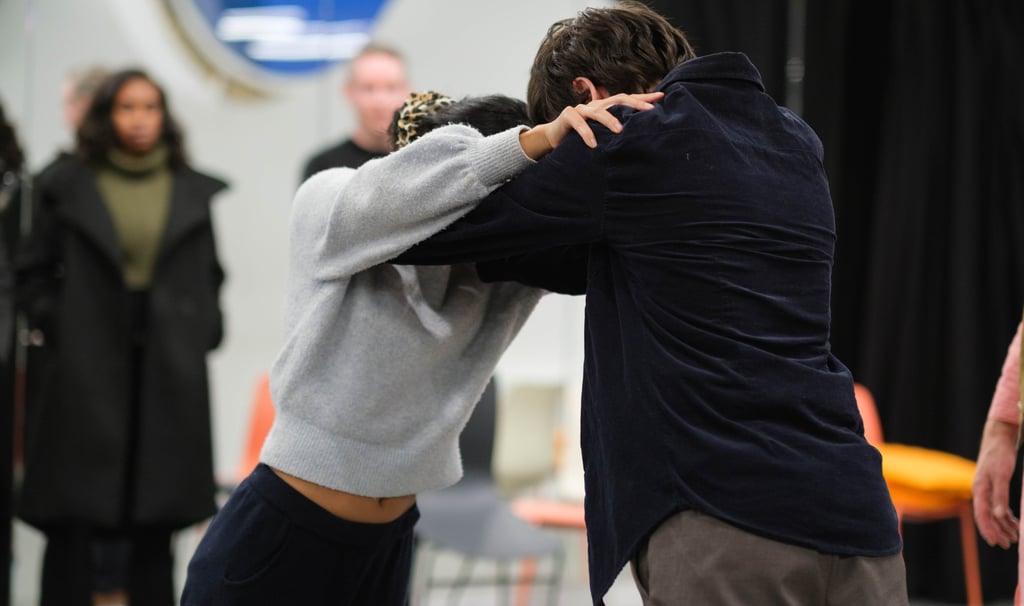Check out our new courses for 2026!
The Theatre of the Oppressed, Organisations and Rules
Adrian Jackson looks at the benefits and pitfalls of breaking the rules.
Adrian Jackson
12/12/2024


On Thursday 5th December, we said a glorious goodbye to my great colleague and world-famous Joker, Terry O’Leary. I have already written here of her talents and how much we have lost in her. I hope it will not sound too mournful – Terry was the opposite of mournful – if I speak for a last time about thoughts that struck me during our gathering the other day listening to people’s tributes.
Terry was a maverick and a rule-breaker. She smoked in pubs (illegal in the UK), barged into men’s toilets, used ‘language’ (the quaint British euphemism for swearing). Theatre of the Oppressed attracts such folk, I like to think I am similarly inclined. But sometimes operating in the straight and ‘boundaried’ world of social and arts sectors, especially in European countries maybe, as many of us do, those qualities are in danger of being stifled by the need to conform to funders’ norms. The company I founded, Cardboard Citizens, probably fell into those traps at various times in its existence, as it grew from a small group of like-minded friends in which we referred to each other as ‘family’ to an organisation which sometimes had 25 full-time staff with a hierarchy of management and a board of directors; but I think on the whole we also emerged with our TO ethics and morality intact.
I hope that the Theatre of the Oppressed engenders qualities in its participants which are inimical to such divisions between people. CCs ran for 30 years under my ‘leadership’ - another problematic concept – (and continues to run now) so inevitably a large number of new and young staff were employed, to whom there were such legal obligations as ‘duty of care’, which within the social sector often means keeping a separation between ‘staff’ and ‘clients’ or ‘service users’. Even those divisions are of course inimical to TO (we preferred ‘members’), but conceptions of ‘Vulnerable Adults’, again usually the invention of the social sector industrial complex, also sometimes limited activities and the depth of engagement.
I am not suggesting for a moment that, in the real world, it is possible, easy or even appropriate for all TO-using organisations to operate, for instance, as flat cooperatives; many organisations that do TO use it amongst many other outputs, rather than just having a single methodology. But it was definitely joyful last week to come together with so many Cardboard Citizens members simply as friends, fellow human beings mourning together.
Augusto Boal often spoke about the rules of games being like rules in society – to his way of thinking, without rules there would be no games, and by extension society; those rules should be to facilitate, rather than to prohibit. But at the same time, he loved to break any rules he felt restricted creativity or self-understanding or caused oppression. Subversion was the name of the game when views and behaviours in our world become too easily settled and unchallenged.
Now some fifteen years after his death, there are many people in different parts of the world, playing their part in the ‘multiplication’ of TO so beloved by Augusto. There are some who would lay down their own rules of how and when it is to be applied and/or what the ‘correct’ methodology is. Boal really disliked any attempt to appropriate TO for use in the service of commerce, which still occurs from time to time. But apart from that egregious re-purposing of the work, the only rule that really matters is to use TO on the side of those experiencing any species of oppression. We start by replacing the protagonist in Forum Theatre, but as the game goes on, that and most other ‘rules’ of how to play Forum or how to use the exercises are a matter of choice and context and can and will be broken when it seems fruitful to do so. The main question to ask ourselves is: what will be the most effective way of generating useful participation, debate and, at its best, action, within our particular constituency?
Back to that rule-breaker par excellence, Terry O’Leary, who as many said, was a force of nature. I pretended to ‘manage’ her for many years, whilst she kind of managed me. She perhaps also managed that rare trick – to appear to stay just inside society’s rules whilst forever subverting and challenging them. A model of individual agency, against the Boalian anti-model of unquestioning obedience. RIP (which probably means Let Rip or Rip up the Rules) Terry, for the last time.


